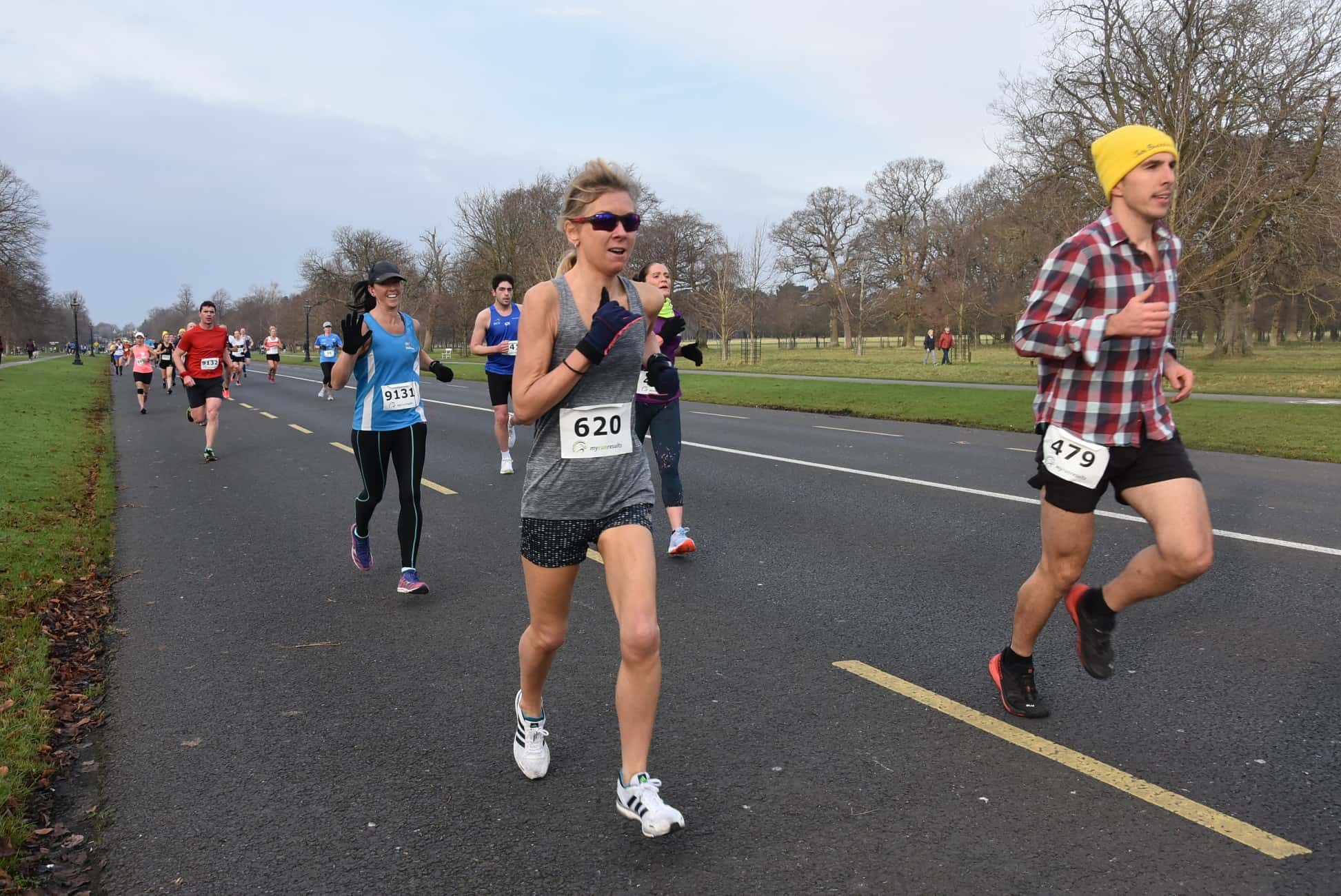Last updated on April 13th, 2021 at 10:33 pm
Us trail runners are a special breed. We drive great distances to find perfect trails, love punishing hills, and many of us push to run sickening distances (I’m looking at you Moab 240).
While I love trail running just as much as the next fanatic, I have begun to incorporate road miles into my routine with great benefit. In this post, I run through 5 ways road running can help your trail running.
1. Spend Less Time Driving
If you’re like me, you don’t live directly next to your favorite trail. In fact, I have to drive an average of 30 minutes just to arrive at any trail worth a damn. I would bet most trail runners have to go through similar efforts to hit the trail.
I wanted to add more mileage this spring in an attempt to finally be able to get my first trail marathon under my belt…but I was wasting so much time driving, which was cutting into my runs. It was hurting my motivation too.
RELATED: Best GPS Watches For Trail Running & Ultrarunning
While stubborn at first, I decided to purchase a pair of road runners. I then planned to do a road run at least once a week. I would leave directly from my house, and run on roads and sidewalks.
The results – I have DEFINITELY been hitting more mileage than usual, and I have enjoyed driving less just to run.
2. You Can Increase Weekly Mileage
The benefits of running are cumulative. That is to say, you will experience mileage you run today far in the future.
Don’t get me wrong, if you run today you might feel great right away. But the benefits you experience aerobically, or to your resting heart rate, or your overall speed happen over the course of many runs.
RELATED: Best Men’s Trail Running Shoes
Running on roads periodically, will likely allow you to get more cumulative mileage under your belt, which will in turn help your overall fitness level. This can be specifically true if you find yourself only being able to find time to run trails on the weekends. Adding one or two short road runs each week could add HUGE cumulative fitness benefits over the long term.
RELATED: Best Women’s Trail Running Shoes
For example, running three road miles on a Tuesday and Thursday doesn’t sound like a big deal BUT if you do that every week for two months, you will have added 48 total miles of running… This is mileage you may otherwise not have gotten in.
In other words, running on the road is a way to increase mileage and strengthen your aerobic engine.
3. You Can Cultivate Your Speed
There isn’t really any debate about it… You can run faster on roads than you can on trails. If you don’t believe me, there is data to back this up; you can check out our post that specifically compares road running and trail running times from major competitions for more proof.
Anyways, if you run roads from time to time, you can capitalize on being able to go faster. You can run faster splits and train your body mechanics to follow a faster gait… This speed will transfer over and benefit you greatly on your trail runs.
Adding faster runs (and doing them for longer distances over time) will:
- Increase your VO2 Max
- Decrease your mile-splits
- Provide your body with variation
To make a long story short, road running can make you a bit faster… even when you switch back to trail running.
4. Gain Race Day Confidence
For any trail runners looking to compete in trail running races, there is a lot to be gained running a bit on pavement.
Yes, you will still want to focus on running trails with elevation gain, BUT running on roads can build confidence that can translate over to success during your trail race.
What do I mean by the above? Essentially, you will have a better understanding of your mile-split limits and you will be able to push yourself a bit more during your trail race.
Because you will be running faster during your road runs, it is likely you will get used to running with a higher heart beat for longer periods of time as well. This will help your body be better prepared for the heart beat increases that occur during ascents and speedy flat sections of your trail race.
5. Increase Your VO2 Max
I have referenced VO2 Max a few times throughout this post. In simple terms, VO2 Max refers to your heartrate at various speeds that you run.
As you expand how long you can run, and at greater speeds, you will notice your VO2 Max improves.
That is to say, you will be able to sustain faster speeds at a more controlled (lower) heart rate. And you will be able to do so longer. Running at faster sustained paces help in this, and you can more easily achieve this by incorporating some road runs into your training.
Once you hop back over to the trail, you won’t lose these gains to your VO2 Max. Most great GPS Watches can help you track VO2 Max gains and loses. You can check out our post on the Best GPS Watches for Trail Running if you want to read through some that provide this capacity.
Incorporate Some Road Runs
This post is not intending to suggest you abandon trail running. ABSOLUTELY NOT. I am, however, suggesting you consider the benefits of various types of running. This includes road running.
By incorporating road running into your trail running routine you will be able to speed up, improve your VO2 Max, and gain some race day confidence.
Image Credit: Peter Mooney |(https://www.flickr.com/photos/peterm7/) | Public Domain Mark 1.0 — reduced file size and image

